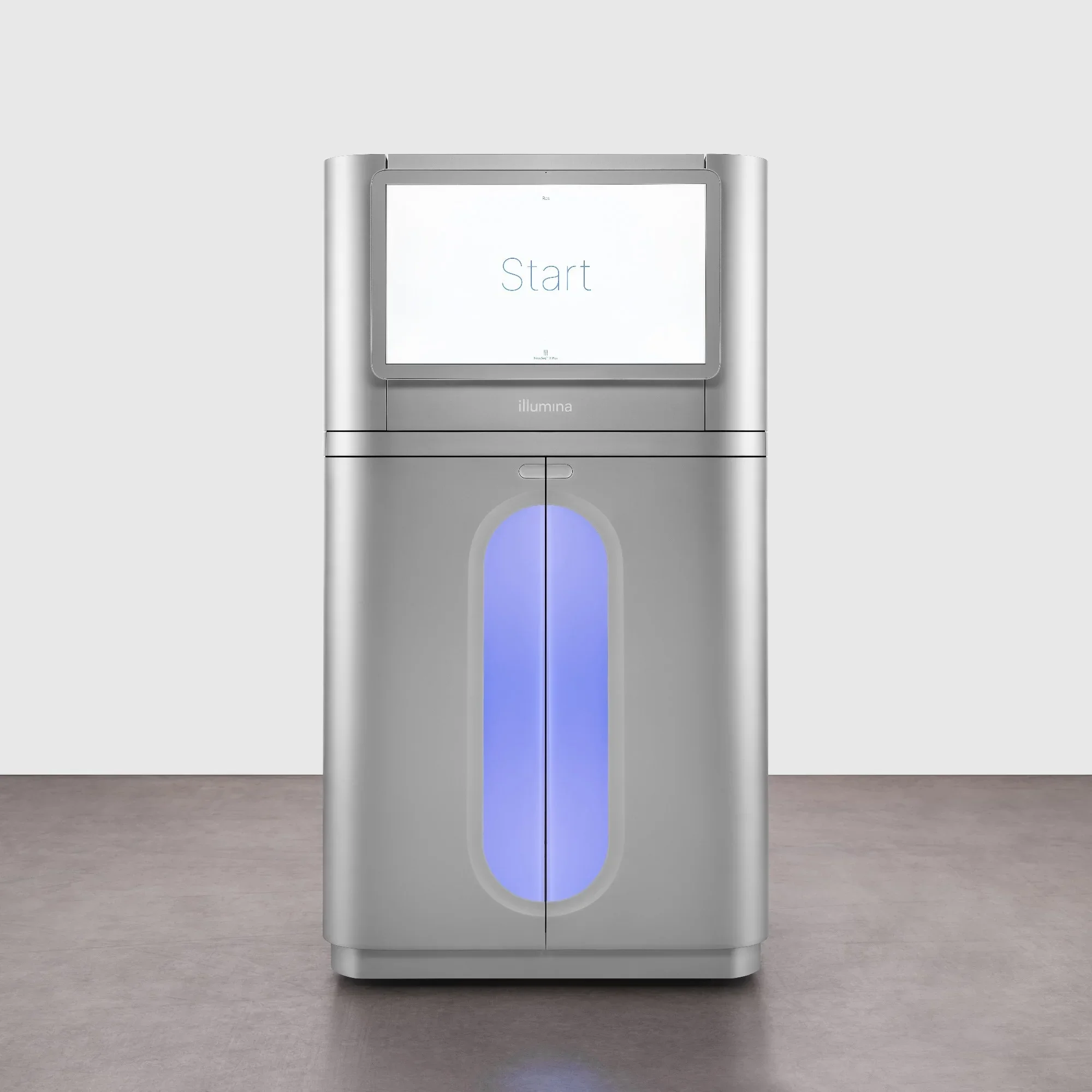
Sequencing Platform
Sequencing at the McGill Genome Centre powers high-resolution discovery across the full spectrum of genomic science - from population-scale studies to cellular-level profiling. Our high-throughput, multi-technology platform combines short-read, long-read, single-cell, and chromatin-resolution technologies to support projects ranging from rare disease gene discovery to transcriptomic mapping and genome architecture analysis. Built for scale and flexibility, the platform supports a wide range of study designs, from basic research to translational and clinical sequencing. Whether you are investigating structural variants in complex genomes, identifying clinically relevant mutations, or tracking expression dynamics across thousands of cells, our integrated sequencing infrastructure enables precise, reproducible insights tailored to your scientific goals.
Short-Read Sequencing
Short-read sequencing is the foundation of many large-scale genomic studies. By generating millions to billions of short DNA fragments (typically 50-300 nucleotides in length), this approach provides a high throughput, cost effective, and highly accurate method for profiling genomes, transcriptomes, and targeted regions. At the McGill Genome Centre, short-read sequencing is used across a wide range of applications - from whole-genome sequencing (WGS) and exome capture to RNA profiling and metagenomics. While short reads are not ideal for resolving highly repetitive regions or large structural variants, these limitations can often be addressed through hybrid assembly, algorithmic correction, or complementary long-read technologies supported by our bioinformatics team.
Common Applications
-
Comprehensive variant discovery and genome-wide analysis
-
Sequencing of coding regions for disease variant detection.
-
Epigenetic profiling of DNA methylation.
-
Transcriptome analysis of gene expression and RNA species (e.g., total RNA, mRNA, miRNA, tRNA)
-
Sequencing of user’s libraries to profile the epigenome, transcription factor binding, and chromosome structure, including ChIP-seq, CUT&Run, CUT&Tag, HiC, etc.
-
Microbial community profiling from environmental or clinical samples.
-
High-quality assembly of microbial and viral genomes
Sequencing Technologies at MGC
-
For very small-scale projects or pilot studies (~4M reads/run)
Supports:
2x150 bp
-
For small genome sequencing or targeted panels (up to ~25M reads/run)
Supports:
2×300bp
2×75bp
2×150bp
2×250bp
-
For large-scale, WGS, RNA-Seq, and exome sequencing (up to 20B reads/run)
Supports:
2×50bp
2x100bp
2x150bp
-
For population-scale or high-throughput transcriptome studies (up to 40B reads/run)
Supports:
2×150bp
2×100bp
2×50bp
-
Cost-efficient WGS and pooled designs (high throughput with custom read configurations)
“We’ve spent years refining our short-read pipelines to be fast, reliable, and scalable - but what matters most is how they continue to support large, collaborative studies that shape clinical and population health research.” – Janick St-Cyr
Platform deliverables
Our short-read sequencing services include sample quality control (QC) and sequencing metrics, with data provided in either fastq or BAM format.
For more advanced analyses - such as genome assembly or structural variant detection - we offer integrated bioinformatics support through the Canadian Centre for Computational Genomics (C3G), as and add-on and ensure end-to-end support from sample to data interpretation.
Integrated Support and Sample Preparation
Our short-read sequencing services are fully integrated with upstream sample preparation and downstream bioinformatics analysis. High-throughput DNA and RNA extractions are available upon request, supported by automated systems such as the PerkinElmer Chemagic platform. We also offer extraction services for samples requiring BCL2 and BCL2+ containment. All projects include access to standardized protocols, platform-specific sample preparation guides, and analysis pipelines. Comprehensive and case-specific bioinformatics support is provided in collaboration with the Canadian Centre for Computational Genomics (C3G), enabling tailored data interpretation for both basic and clinical research.
Long-Read Sequencing
Long-read sequencing expands the limits of genome analysis by producing continuous DNA sequences that span thousands to hundreds of thousands of base pairs. Unlike short-read approaches, which fragment DNA before sequencing, long-read technologies can resolve highly repetitive regions, detect large structural variants, and improve phasing and assembly. At the McGill Genome Centre and offered by the Advanced Genomic Technolgies laboratory, long-read sequencing plays a key role in de novo gene assembly, structural variant detection, transcript isoform resolution, epigenetic, and epitranscriptomic profiling. These technologies are particularly valuable in complex genomes, rare disease diagnostics, and microbial community analysis where reference-free or structurally rich data are required. While long-read sequencing has traditionally offered lower per-read accuracy and throughput compared to short-read methods, advances in base-calling algorithms, consensus polishing, and instrument design have significantly mitigated these limitations - making long-read platforms an increasingly powerful tool in integrated multi-omic research.
Common Applications
-
High-contiguity assembly of complex genomes without a reference
-
Identification of large insertions, deletions, and inversions
-
Phasing of genetic variants across long distances for inheritance and disease association studies.
-
Isoform-level analysis of gene expression, splicing, and transcript structure.
-
Native DNA methylation detection without bisulfite conversion (PacBio, Nanopore)
-
Detection of m6A modifications on RNA transcripts (Nanopore)
Sequencing Technologies at MGC
-
Next-generation PacBio system offering higher throughput and quality and lower cost per Gb
-
Scalable, high-throughput sequencing with long reads, ultra-long reads, small genome sequencing and full length RNAseq (bulk and single cell)
“What excites me about long-read sequencing isn’t just the read length - it’s what it unlocks: phasing, structural variants, isoforms we couldn’t see before. We’re now resolving regions that were effectively invisible.” - Ioannis Ragoussis (Head of Genome Sciences)
Platform deliverables
Our long-read sequencing services include sample quality control (QC) and sequencing metrics, with data provided in both fastq format and, upon request, in native sequencer formats (PacBio BAM or Nanopore POD5 files). If a reference genome is supplied, basic alignment and raw variant calling can also be performed. Deliverable will be provided by the Advanced Genomic Technologies laboratory.
For more advanced analyses - such as genome assembly or structural variant detection - we offer integrated bioinformatics support through the Canadian Centre for Computational Genomics (C3G), as and add-on and ensure end-to-end support from sample to data interpretation.

